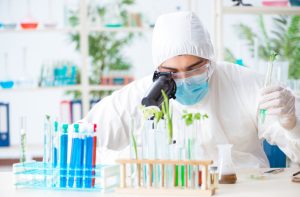Article Contents
Hi All, welcome to Brain Checker’s blog, in today’s article we will be talking about What is Biochemistry? What do Biochemists study? | Biology |. I am Keya Raje, a Counseling Psychologist and Co-Founder, Brain Checker, I have been working as a Career Counselor and Mental Health Professional for last 10+Years. In this article, we will be talking about What is Biochemistry? What do Biochemists study? | Biology |. So let’s begin.
What is Biochemistry? What do Biochemists study? | Biology |
what is biochemistry
it’s the chemistry of life
you know about atoms and molecules from chemistry but there’s nothing alive about chemistry it’s just chemicals in a beaker so
what’s so special about the molecules of life
it’s a case of emergent properties that is as biological molecules come together and interact properties emerge that you wouldn’t predict you can think of biology in terms of a structural hierarchy atoms molecules cells tissues organs pretty soon you have a multicellular organism with a metabolism let’s start with atoms especially schnapps carbon hydrogen nitrogen oxygen phosphorus and sulfur these are the elements that make up 98 of living matter on earth we can study the behavior of these individual atoms but things get more interesting when these atoms interact bonds are formed and broken we see the emergence of chemical behavior some of these atoms stay bonded together forming biological molecules there are four main kinds of
1.biological molecules
2.proteins
3.carbohydrates
4.lipids and nucleic acids
proteins are polymers of amino acids that is amino acids strung together to form a chain these strings of amino acids fold into three-dimensional shapes that do most of the work of life with proteins and all biological molecules the key to remember is that the 3d structure determines the function think of how a key fits into a lock the shapes have to be just right for the key and the lock to do their jobs the jobs of proteins include structure like collagen enzyme catalysts that control the rate of reactions signaling like some hormones immune function like antibodies and antibody receptors i could go on all day carbs carbohydrates are sugars and polymers of sugars these are used for energy and to build biological structures lipids are non-polar molecules like fats oils and phospholipids these are important for energy storage for cushioning and for structures like cell membranes nucleic acids include dna and rna these store genetic information it’s important to note that these are all carbon-based molecules this is why we say we’re carbon-based life forms the skeletons of biological molecules are made up of carbon atoms covalently bonded together in very stable structures hanging off the outside of the molecules are functional groups small chemical species like oh or ch3 think of the carbon skeleton giving biological molecules their general 3d shape and the functional groups like flags hanging off participating in chemical reactions we see another level of complexity emerge when these biological molecules interact with each other we get enzymes controlling reaction rates we get dna replication genetics we get cells and within cells we have an incredibly diverse set of chemical reactions that are controlled and run at just the right rates to keep us all alive that’s what biochemistry is the building blocks of life itself our new biology series will cover all of these topics in more depth so be sure to

For more information on this and other research from Brain Checker, please visit our web site (https://www.brainchecker.in) or call us on our National Helpline at +91-9970057774 or fill out the inquiry form https://rb.gy/6b1zpp form and our team will reach out to you shortly. If you liked our article please subscribe to our YouTube channel https://rb.gy/b5g4er for more such content. Thank you for reading .




